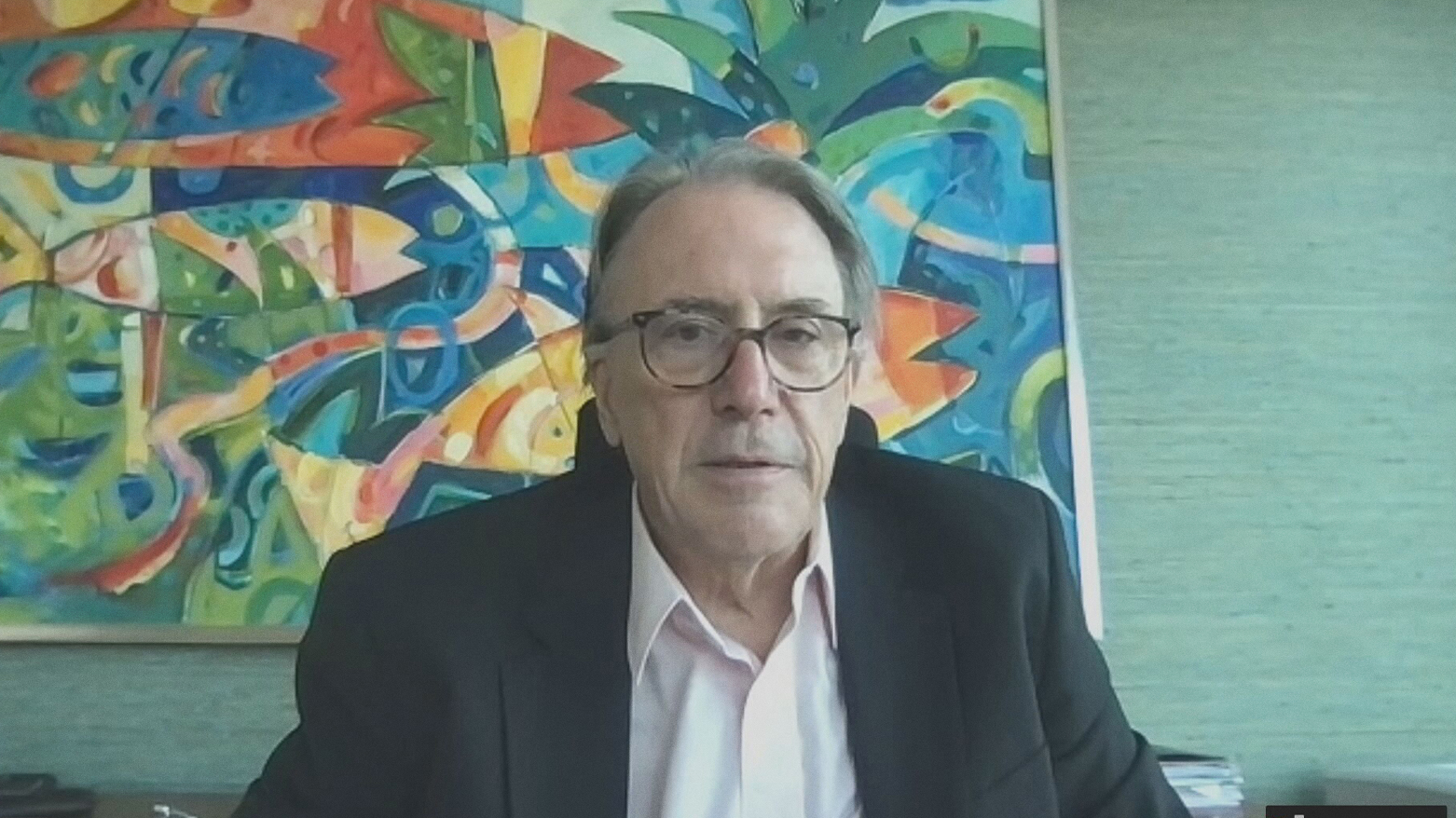'There’s a Lot of Affection for Kurdistan,' Galbraith Says PM Barzani’s Visit Comes at a Pivotal Moment
Galbraith stated, “They will want to resolve the issue of the export of oil from the Kurdistan Region because they would like to increase global oil supplies. Some of the companies are American. Those companies would like to be paid."

By Kamaran Aziz
ERBIL (Kurdistan24) – As Kurdistan Region Prime Minister Masrour Barzani continues his high-level visit to Washington, D.C., former U.S. diplomat Ambassador Peter W. Galbraith has described the Kurdistan Region as "an island of stability in a troubled region" and called on the United States to expand its strategic relationship with Erbil.
Speaking to Kurdistan24 on Saturday, Galbraith emphasized the significance of Barzani’s visit in the context of a shifting Middle East landscape, recent changes in Syria, and rising concern over Iran’s regional role. “Certainly, it's a very good time to be going to Washington and meeting with American officials,” he noted. “It’s coming off of Trump's visit, as you point out, to Saudi Arabia, to the Emirates, and to Qatar. That visit was hugely about getting those countries to invest in The United States and commercial deals, arms deals.”
Barzani’s agenda in Washington is expected to include discussions on regional security, the Kurdish-American partnership, and the vital issue of oil exports. Galbraith stated, “They will want to resolve the issue of the export of oil from the Kurdistan Region because they would like to increase global oil supplies. Some of the companies are American. Those companies would like to be paid. So that certainly will be an important subject of discussion.”
Galbraith underscored Kurdistan’s long-standing value to the United States. “Oh, the Kurdistan Region is an island of stability in a troubled region. It is probably the most pro-American place in the Middle East, and I say that I also include Israel,” he said. “Whether actually there's often been hostility toward American policies in Israel, but Kurdistan has always been pro-American.”
Reflecting on decades of cooperation, he pointed out that “Kurdistan participated in the liberation of Iraq in 2003. In all the intervening time, no American has died in Kurdistan as a result of hostile action. It is a place where American companies have invested. It was a partner in the fight against Daesh (ISIS).”
He also praised the personal and institutional bonds between Americans and the Kurdish people. “Americans who traveled to Kurdistan—when I first went there, almost nobody had gone—but now there are tens of thousands of people who have gone, including soldiers, diplomats, journalists, business people, even some tourists. They’re always impressed by the generosity and warmth of the Kurdish people.”
Support for the Kurdistan Region in Washington, he added, runs deep. “Kurdistan is popular. In the Congress, there's a Kurdish caucus. And one of the previous heads of it was Michael Waltz, who was briefly Trump's first national security adviser. So there's a lot of pro-Kurdish sentiment in the US, a lot of affection for Kurdistan.”
Galbraith acknowledged that U.S. reliability has varied over time. “Of course, the US has been an ally of Kurdistan. It started protecting Kurdistan in 1991 with the safe area. It was an ally in the liberation of Iraq. I have to say, America hasn't always been the most reliable ally, but it is an ally.”
In terms of substantive cooperation, he said, “Certainly, it's the security sector. And, again, that goes back to—and humanitarian sector—back to 1991 when the US intervened to prevent Saddam's forces from taking over the Kurdistan Region after the failed uprising, [and] created the safe area.”
Galbraith highlighted shared commitments in fighting ISIS, as well as expanding ties in education and business. “It was a common fight to liberate Iraq. It was the common fight against ISIS when the Iraqi army just collapsed. So the security is there. Humanitarian is there. Of course, increasingly, there are business ties, particularly in the oil sector, educational ties.”
He continued, “I’m on the board of the American University of Kurdistan, which is one of two American universities in the Kurdistan Region. Of course, the Prime Minister is the chairman of the board. There’s the American University of Iraq in Sulaimani, where the former President of Iraq, Barham Saleh, is the chairman of the board.”
Looking to the future, Galbraith said, “There are a lot of commonalities between the Kurdistan Region and the United States. And I think most Americans recognize that Kurdistan is a much more reliable ally than Iraq.”
Regarding the immense new U.S. consulate compound in Erbil, he said, “Well, the consulate, I think, is the biggest consulate in the world, and it was clearly designed so it could be an embassy someday. And I think most Americans would like to see an independent Kurdistan in the territory of Iraq, where Kurdistan Region now is.”
Galbraith also urged caution regarding Syria policy and the future of ISIS prisoners. “I imagine that one of the issues that would come up, and which I would urge the Prime Minister to raise, is that although Trump asked al-Sharaa to take over the ISIS prisoners and the women and children in the prison camps, I don’t think it’s in the interest of the United States or Kurdistan for these to be turned over to a regime headed by somebody who was a part of ISIS and Al Qaeda, even if he is changed.”
“There are many that are still sympathetic to ISIS and Al Qaeda in the new administration in Syria,” he warned. “So I think it would be very unreliable to turn the prisoners over to that regime, although Trump, I don’t think he had thought it through very much. That was one of the subjects of discussion.”
With mounting regional uncertainty, Galbraith’s message is clear: the Kurdistan Region is a proven partner—and Prime Minister Barzani’s visit is a vital opportunity to deepen an alliance rooted in security, shared values, and common interest.